Ditapis dengan
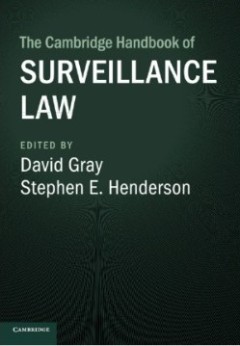
The Cambridge Handbook Of Surveillance Law
Surveillance presents a conundrum: how to ensure safety, stability, and efficiency while respecting privacy and individual liberty. From police officers to corporations to intelligence agencies, surveillance law is tasked with striking this difficult and delicate balance. That challenge is compounded by ever-changing technologies and evolving social norms. Following the revelations of Edward Sn…
- Edisi
- -
- ISBN/ISSN
- 978-1-107-13794-3
- Deskripsi Fisik
- 787 hlm.
- Judul Seri
- -
- No. Panggil
- -
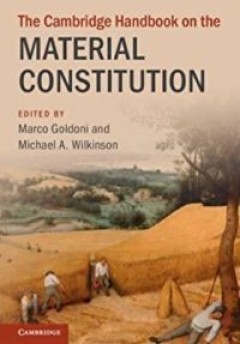
The Cambridge Handbook on the Material Constitution
Despite a long and venerable tradition, the material constitution almost disappeared from constitutional scholarship after the Second World War. Its marginalisation saw the rise of a normative and legalistic style in constitutional law that neglected the role of social reality and political economy. This collection not only retrieves the history and development of the concept of the material co…
- Edisi
- -
- ISBN/ISSN
- 978-1-009-02376-4
- Deskripsi Fisik
- 395 hlm.
- Judul Seri
- -
- No. Panggil
- -
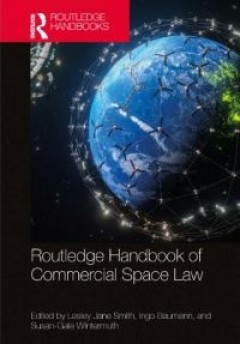
Routledge Handbook of Commercial Space Law
The Routledge Handbook of Commercial Space Law provides a definitive survey of the transitions and adjustments across the stakeholder community contributing to outer space activities. The interaction between NewSpace, traditional aerospace industrials, and non-traditional space-related technologies is driving market changes which will affect state practice in what has until now been a governmen…
- Edisi
- -
- ISBN/ISSN
- 978-1-003-26847-5
- Deskripsi Fisik
- 610 hlm.
- Judul Seri
- -
- No. Panggil
- -
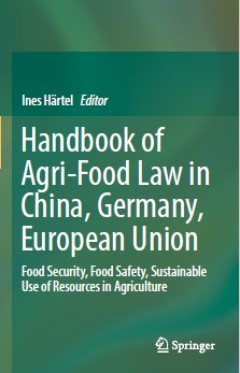
Handbook of Agri-Food Law in China, Germany, European Union: Food Security, F…
This book offers a new and differentiated overview of Agri-Food Law against the background of national and global integration of markets, and compares for the first time important aspects of the agricultural, environmental and food law of China and Germany / the European Union. In addition to the basics, it discusses a wide range of issues, such as the respective legal regulatory structures for…
- Edisi
- -
- ISBN/ISSN
- 978-3-319-67666-1
- Deskripsi Fisik
- 663 hlm.
- Judul Seri
- -
- No. Panggil
- -
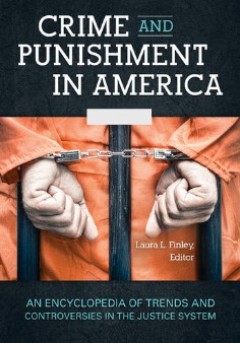
Crime and Punishment in America: An Encyclopedia of Trends and Controversies …
Covering some of the most hotly contested topics in crime and criminal justice, including proposed sentencing and prison reforms, controversial developments like Stand Your Ground laws, and Supreme Court decisions, this work supplies essential background, current data, and a range of viewpoints on these important issues. Should people be able to use lethal force before retreating? What are the…
- Edisi
- -
- ISBN/ISSN
- 978-1-61069-928-0
- Deskripsi Fisik
- 914 hlm.
- Judul Seri
- -
- No. Panggil
- -
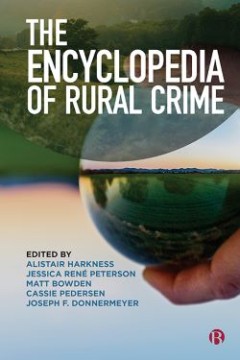
The Encyclopedia of Rural Crime
The key reference guide to rural crime and rural justice, this encyclopedia includes 85 concise and informative entries covering rural crime theories, offences and control. It is divided into five complementary sections: theories of rural crime; rural crime studies; rural criminal justice studies; rural people and groups; rural criminological research. With contributions from established and em…
- Edisi
- -
- ISBN/ISSN
- 978-1-5292-2203-6
- Deskripsi Fisik
- 388 hlm.
- Judul Seri
- -
- No. Panggil
- -
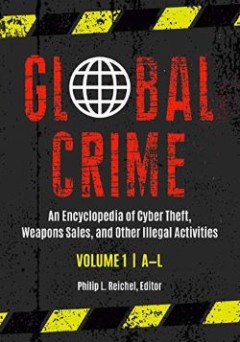
Global Crime: An Encyclopedia of Cyber Theft, Weapons Sales, and Other Illega…
A definitive resource for understanding such far-reaching and often interconnected crimes as cyber theft, drug trafficking, human smuggling, identity theft, wildlife poaching, and sex tourism. While many international corporations have benefited from the global economy and distribution of information, globalization has also had serious negative consequences. This important reference work offer…
- Edisi
- -
- ISBN/ISSN
- 978-1-4408-6015-7
- Deskripsi Fisik
- 860 hlm.
- Judul Seri
- -
- No. Panggil
- -

Encyclopedia of Criminology and Criminal Justice
The Encyclopedia of Criminology and Criminal Justice is an international, comprehensive reference tool for the field of Criminology and Criminal Justice that is both cutting edge as well as of very high scientific quality and prestige. This 10-volume work provides a complete and systematic coverage of the field that is unprecedented. The Encyclopedia "defines the field" through its choice of o…
- Edisi
- -
- ISBN/ISSN
- 978-1-4614-5690-2
- Deskripsi Fisik
- 5662 hlm.
- Judul Seri
- -
- No. Panggil
- -
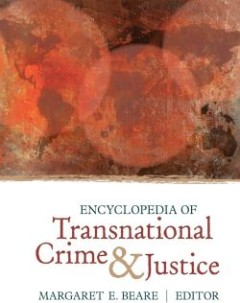
Encyclopedia of Transnational Crime and Justice
Transnational crimes involve border crossings as an integral part of the criminal activity. They also include crimes that take place in one country with consequences that significantly affect other countries. Examples include human trafficking, smuggling (arms, drugs, currency), sex slavery, non-domestic terrorism, and financial crimes. Transnational organized crime refers specifically to trans…
- Edisi
- -
- ISBN/ISSN
- 978-1-4129-9078-3
- Deskripsi Fisik
- 545 hlm.
- Judul Seri
- -
- No. Panggil
- -
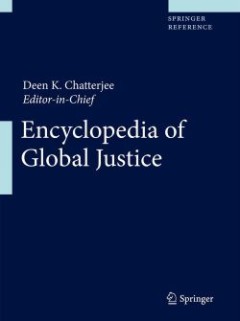
Encyclopedia of Global Justice
This two-volume Encyclopedia of Global Justice, published by Springer, along with Springer's book series, Studies in Global Justice, is a major publication venture toward a comprehensive coverage of this timely topic. The Encyclopedia is an international, interdisciplinary, and collaborative project, spanning all the relevant areas of scholarship related to issues of global justice, and edited …
- Edisi
- -
- ISBN/ISSN
- 978-1-4020-9160-5
- Deskripsi Fisik
- 1213
- Judul Seri
- -
- No. Panggil
- -
 Karya Umum
Karya Umum  Filsafat
Filsafat  Agama
Agama  Ilmu-ilmu Sosial
Ilmu-ilmu Sosial  Bahasa
Bahasa  Ilmu-ilmu Murni
Ilmu-ilmu Murni  Ilmu-ilmu Terapan
Ilmu-ilmu Terapan  Kesenian, Hiburan, dan Olahraga
Kesenian, Hiburan, dan Olahraga  Kesusastraan
Kesusastraan  Geografi dan Sejarah
Geografi dan Sejarah